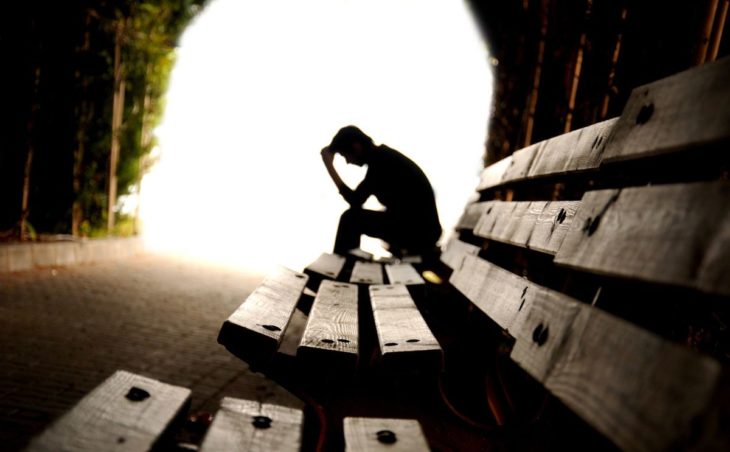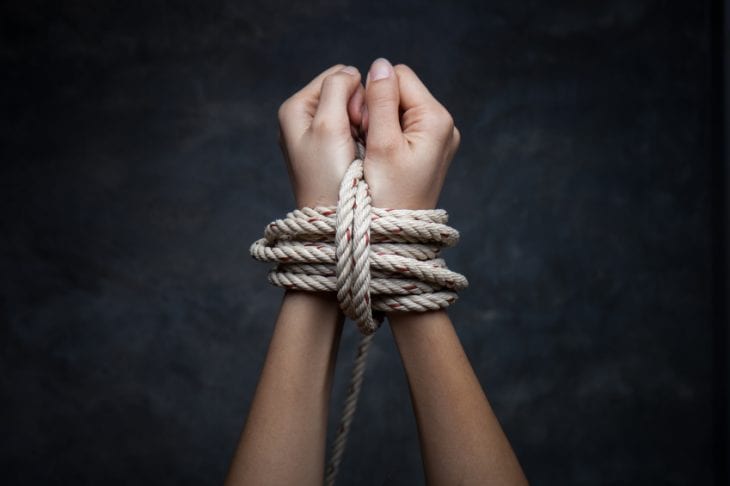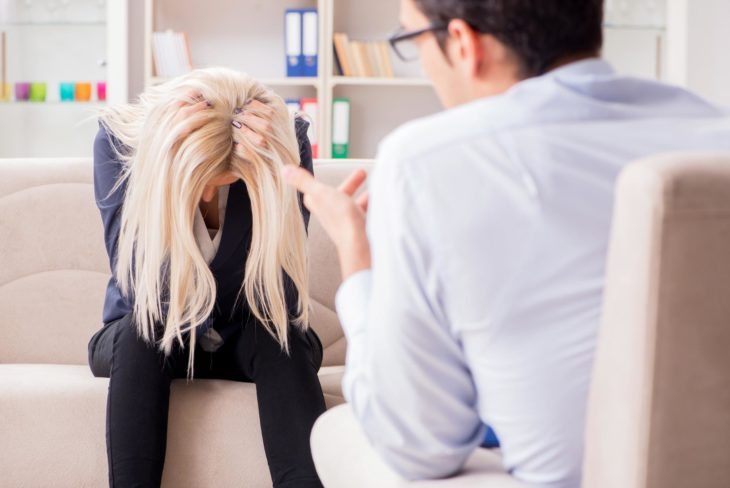If you’ve ever actually listened to people talk about what living with PTSD is really like, it feels insane, hurtful, and offensive to then also hear other people try to say that PTSD isn’t real or isn’t a big deal. I know I was far from the only one who wanted to throw a TV at my TV when I heard that Donald Trump said that “people come back from war and combat and they see things that maybe a lot of folks in this room have seen many times over and you’re strong and you can handle it but a lot of people can’t handle it.”
A lot people heard him seemingly speaking about PTSD that way (some people say he might not have meant that specifically, but it’s hard to not think that’s exactly what he was implying) and were shocked because they know all too well that the effects of PTSD can be devastating for even the strongest people on earth.
To further illustrate this, I spoke with a number of women and genderqueer people to find out how PTSD affects their everyday lives, and the additional challenges that come from living in a world where people discount PTSD altogether. If you actually listen to people speak out about how this all-too-real mental illness affects people and how harrowing it actually is to survive that kind of trauma and live to tell the tale (and face the constant symptoms and navigate the triggers), you’ll know that anyone who tries to say PTSD sufferers are weak is a fool and frankly, heartless.
Here are several stories from real people who struggle with it every day.

Source: Buckfire & Buckfire, PC
Contents
Bridget, 19
“When I was 15, I was sexually assaulted by a man I thought of as an older brother. He was 34. We were in a play together and it happened backstage, multiple times. From the ages of 7 to 15, theater and music were my whole world, but after that, that was the last play I was ever in. I still can’t enter a theater without my hands shaking, even if I’m just in the audience. Part of the reason I still haven’t participated in any type of stage production is because I can’t be backstage without completely breaking down. Trump’s comments hit me in a few obvious ways, but one unexpected thing did come out of it. Suddenly people were posting on Facebook and Twitter about their stories. Women from my childhood, college, and work were talking about their experiences as survivors. It made me feel validated and it made me feel like I was not alone.
Liza, 34
“Often I wake up sweating, unable to breathe, or forgetting where I am. The nightmares and flashbacks make me shake and cry, all the while my chest burns from hyperventilating. I wake my husband with screams and he has to reassure me that I am safe and no longer in a dangerous place. It doesn’t make me weak, it makes me human. But it still sucks.”
Took, 24
“Some days, PTSD literally controls my entire life. My brain is literally rewired to process certain senses with danger and fear. I have PTSD from an incident where an arsonist tried to burn my house down while so many of my friends were sleeping in it. I now consistently worry that my loved ones have been hurt if I don’t hear from them for a couple of hours. For Donald Trump to not understand that so many people in America suffer from literal brain dysfunction from traumatic events (that’s what I would call mine) shows he is unfit to be President.”
Jodie, 27
“When I was younger, my therapist suggested that my sexual assaults may have given me PTSD, but I didn’t think that was feasible. I hadn’t seen anyone die or anything, you know? My personality had just changed as I’d gotten older and I never identified as having been traumatized. After an incident last year that mirrored and deeply triggered one of my assaults, I had a full breakdown and it forced me to realize that I do have PTSD. It’s devastating to recognize the way that PTSD has affected how I move in the world and relate to people, the way my mind works, and the physiological effects that my trauma has on me. Navigating the mental health system and trying to work through my daily symptoms, like hyper-vigilance and panic attacks, while also trying to have people respect and understand what I am going through is like having another job. I always wonder what my life would be like and what I could accomplish if I didn’t have to use my time and resources getting better.”

Source: ptsdjournal.com
Fay, 27
“Living with PTSD is a bit like living on a volcano. You’re never quite sure when it’s going to off, but when triggered, you can’t run from it or hide from it. Flashbacks and panic engulf you, and despite years of therapy (if you were lucky enough to get good treatment), you could still spiral into a depression that could take months or years recover from. And all that’s inside your head every day as you go on working, living, and loving.”
Jennifer, 36
“PTSD is like living in the movie Groundhog Day except you aren’t repeating actions, you’re repeating responses to actions and they are absolutely out of your control. At times I feel like I’m living in a constant echo chamber of my past, which makes me feel defeated, alone, ashamed, and angry. Just once I’d like to have a normal reaction to a normal situation. Just once.”
Jamie, 24
“Half of what triggers my PTSD is the denial others have that it exists in the first place. It took me years to even figure out what was making doing things as simple as looking in a bathroom mirror, sleeping more than a couple hours, or talking to other people so difficult. Knowing that my PTSD is real doesn’t change the fact that it rears its head in places I don’t expect, but the knowledge that it’s real, and not another argument for women being crazy, or un-chill gives it a context inside my life that I find grounding. It is a part of me now, even though I didn’t choose to have it put there. So I take my pills and go to work and do what I did before PTSD became an interference, but my ignoring it, and people ignoring their own, is what lets it win.”
Christen, 45
“I’m a teacher and my class spent this morning talking about the debate. One student said something like, “So many of my friends say Trump reminds them of their attacker, or that their PTSD is triggered when they watch him. Why aren’t more people talking about THAT?” And I said, “Oh, I was totally triggered by that debate last night! I don’t actually see him in action very often, but when I do, my fight or flight response kicks in.” My heart starts to race, I need to shake my hands, I get so angry. Even my kids say, “We can turn it off, Mommy!” I felt like I was abusing them by having them watch him. We tried to laugh at it. My son is 13 and has a sense of humor about it, but my daughter is 7, and she was trying to figure out the expression on his face. I’m still thinking about watching that bus video, and the moment when Arianne hugs him, and that forced intimacy that is so prevalent. It makes me sick to my stomach.”

Source: Sociedade Brasileira de Coaching
Jourdain, 24
“Sometimes when I’m having sex and I let my mind wander, even for a second, I find myself plagued by memories of my many assaults. Suddenly, the entire act feels disgusting, violating. If I stay in my head too long, I have to stop having sex entirely. I find myself having to hyper-focus on my partner’s eyes to get out of my head. But sometimes I push out the thoughts just long enough for him to finish and then I curl up in a ball and keep to myself. I never tell him why I do this.”
Megan, 24
“My PTSD symptoms began shortly after coming to terms with my experiences of sexual assault and accepting that I was a survivor of rape, which I had repressed for years before that. My PTSD lives comfortably along side my anxiety, which usually makes my day-to-day a lot harder than it needs to be. All it takes it one thought and within moments, my muscles are tense, it’s hard to breathe, and I become a mixture of combative and scared, while trying to regain control of what’s happening to me internally. I never feel comfortable going anywhere alone, especially at night, which has made me less of the independent person I strive to be. It sucks, but talking about it, and having the support of other women has really helped me heal.”
Original by: Lane Moore
